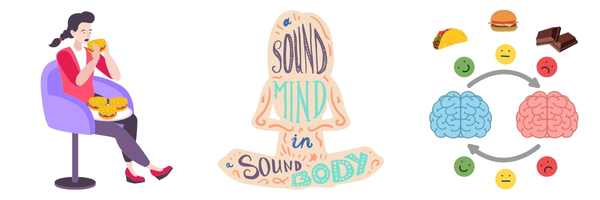Emotions and Eating

In the complex journey of weight loss, understanding the emotional aspect of eating is crucial. Often, our relationship with food goes beyond just hunger—it’s entwined with our feelings and emotions. Here we’ll delve into the nuances of emotional eating and how understanding it can be the key to effective and sustainable weight loss.
Emotional Eating Triggers
Many of us turn to food for comfort, not just nourishment. Recognizing the emotional triggers—like stress, boredom, or sadness—that lead us to overeat is essential. By understanding our emotional needs and finding healthier ways to cope, we can start to change our eating habits.
Stress and Snacking
Stress often leads us to seek solace in snacking. Identifying stress triggers and finding alternative coping mechanisms, such as exercise or hobbies, can break the cycle of stress eating, helping us make healthier choices. We can also set ourselves up for success by making healthy choices in the grocery store, making it easier for us to make healthy snacking choices when stressed.
Food and Feelings
Our emotions significantly influence our food choices. Learning to differentiate between emotional hunger and physical hunger can empower us to make better eating decisions, leading to a healthier lifestyle.
Breaking Free from Emotional Eating
Emotional eating is a cycle that can be broken with mindfulness and awareness. Recognizing our patterns and finding healthier emotional outlets is key to overcoming this challenge.
Mindful Eating for Emotional Balance
Mindful eating involves being fully present during meals, savoring each bite, and being attuned to our feelings, thoughts, and physical sensations. This practice can help us address the emotional reasons behind our eating habits and make more conscious food choices.
Get enough sleep
Aim for 7-9 hours of quality sleep each night. Lack of sleep can disrupt hormone regulation and increase appetite, making weight loss more challenging.
Comfort Food: A Temporary Solution
While comfort food can provide temporary solace, it’s not a solution to underlying emotional issues. Finding other ways to cope with our emotions is vital for long-term health and well-being.
Emotional eating is a common challenge, but it’s one that can be overcome with understanding and mindfulness. By exploring the connection between our emotions and eating habits, we can embark on a more informed and fulfilling weight loss journey. Remember, the path to wellness is not just about the food we eat but also about understanding and nurturing our emotional health.
If you’re ready to explore the emotional aspects of your eating habits and take a step towards a healthier you, join us at Horizons. We offer comprehensive weight loss programs that address both the physical and emotional sides of weight management through innovative weight loss counseling. Contact us to learn more and start your journey today!


